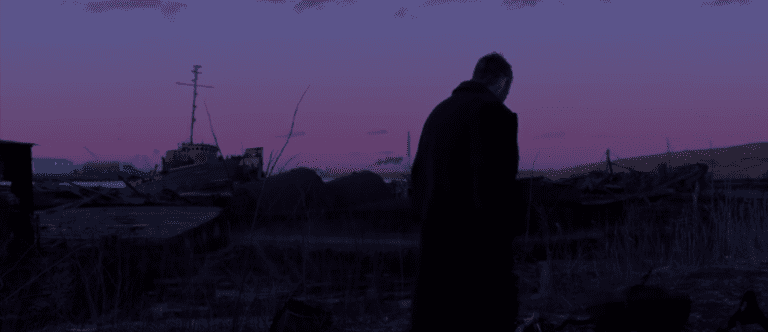
Saving Grace
Big spoilers here:
On the day of First Reformed’s 250th anniversary and re-consecration service, Toller straps on Michael’s suicide vest, planning to blow up the church and everyone inside. But when he sees Mary enter the sanctuary, he changes his tack. He takes off the vest and instead wraps himself in barbed wire—a mimicking of Christ’s own suffering and evidence of his deluded push toward imagined martyrdom. He then pours himself a glass of toilet cleaner and prepares to drink.
Father, if you are willing, remove this cup from me …
But Toller is no Christ-figure whose sacrifice is needed. Mary walks in. Toller drops the cup. And they kiss—passionately, tenderly, fervently.
I admit that, when I got to this point in the film, my brain fired off in a whole bunch of different directions.
First, the whole kissing conclusion made me a bit uncomfortable, perhaps because Toller’s emotional and spiritual hurt seemed to be salved in a very physical, sensual way.
Second, I thought to myself. “Man, they’re pressing so close together. Wouldn’t that barbed wire really, really hurt her?” A silly thought, but an honest one.
And third, I felt a sense of disbelief—that perhaps what I was watching was only happening in Toller’s dying brain. Everything in the movie seemed to inexorably lead to a bitter, tragic end for Toller. This felt too good to be true—a little too deus ex machina for me.
But then I recalled how my own pastor used to say that divine grace itself felt too good to be true—why so few people are able to accept it fully. That’s why they call it the Gospel, he’d say.
The hope of Jesus was, by definition, a deus ex machina twist—God at work in our hopeless lives. Mary, the movie’s avatar of hope, came and broke through Toller’s despair. Despite being entwined with his own self-made barbs—his guilt and anger and nihilistic tendencies—he embraced his hope. And that hope—unmindful, unreasoning, embraced him back.
As Christians, we hold the paradox of hope and despair in our minds. We see our sins, the world’s sins, all the awfulness that we wallow in every day, and we see it for what it is.
And yet we have hope. A hope not bound in reason, but in God’s own unreasonable love for us.
I’m reminded of First Reformed’s trap door: How those trapped in such a confined, dark space, could be somehow so much closer to freedom.
First Reformed digs into a lot of different issues: How we’ve dropped the ball on being God’s good stewards; how the Christian Church sometimes risks forsaking its righteous activism for a hollow, feel-good spirituality; how well-placed anger can sometimes lead us to some very bad actions. But I was most moved by First Reformed’s look at love and hope in the midst of pain and despair—and how it reminded me of God’s foolish love for us. That where there’s life, there’s hope.













